“What is a qualitative researcher to do…” – Digitising a Newspaper Archive
August 24, 2017
Dr Christian Karner, Associate Professor, Faculty of Social Sciences talks about the role of his newspaper archive in his research and the positive impact of digitising it: “What is a qualitative researcher to do when faced with an already enormous and continuously growing corpus of data? Guided by their self-definition as social scientists in search of particularistic …
Investigating Automated Transcription and Translation
August 7, 2017
The Digital Research Team are working with researchers in the School of Education to explore the potential of automated transcription and translation services. Currently researchers either make use of third-party transcription services or simply transcribe the data themselves. In terms of services, the costs for transcription can be quite high (~£60/hour) which means researchers cannot afford …
Digitally Preserving the Hennessy Collection
August 4, 2017
The Centre for Research on Cuba is home to the Hennessy Collection, which is a unique archive of Cuban periodicals from the 1960s through to the 1990s. Originally donated to the Forum for the Study of Cuba by Professor Alistair Hennessy in 1994, the archive currently holds over 70 different journals and newspapers, including extensive runs of …
The Role of Paper Prototyping in Digital Engagement
August 3, 2017
In order to demonstrate the effectiveness of both virtual reality and digital public engagement, the Digital Research Team are working with researchers School’s of Politics, Law and Computer Science to develop an interactive experience. The goal is to explore aspects of corruption and whistle blowing in the workplace through a virtual reality game. The game …
Fake News, Digital Sociology and Computerphile
August 2, 2017
The Digital Research Team have been working with Dr Christian Karner from the School of Sociology and Social Policy to enhance his research through use of different digital technologies. This led to a research project in collaboration with Dr Martin Flintham from the School Computer Science looking at Fake News. Christian recently filmed an interview …
Fake News Research Study Outcomes and Reflection
August 1, 2017
The Digital Research Team have helped facilitate a collaboration between researchers in Computer Science and Sociology. This is a guest blog post written by Dr Helen Creswick. The research team created a fake Facebook profile, populating it with various news posts (fake and otherwise), and recruited participants to take part in an activity where they …
Research Software Engineering: HPC Midlands Plus
July 31, 2017
The University is part of a consortia of Universities, which have been awarded funding from the EPSRC to provide one of a number of regional ‘Tier 2’ High Performance Computing Centres. The facility is physically located at the University of Loughborough, HPC Midlands Plus These regional facilities provide a greater computational capacity than an individual University …
Arts Impact: Storytelling Objects
June 14, 2017
This guest blog post was provided by Hyosun Kwon from the Mixed Reality Lab: The Storytelling Objects project aims to explore notions of audience engagement with hybrid (digital/physical) gifting. We will be creating a ‘box’ that will be sent out to transmedia practitioners. The box will ask them to create a ‘captivating’ story fragment using …
Use of Affordable Eye Tracking in News Verification Strategies
The Digital Research team are facilitating a collaboration between Schools of Sociology and Social Policy, and Computer Science to explore fake news in social media. Having completed a survey which explored user perceptions of fake news, we are now about to begin a series of studies looking more closely at the ways people assess digital …
Data management planning for a signature research centre
June 1, 2017
Scientific equipment can now regularly produce what we might perceive enormous volumes of data. Gene sequencers or imaging system that can produce 200 gigabytes in a day are already in common use at the University of Nottingham, and equipment already exists which can produce 100 terabytes in a day. Data volumes are always likely to …


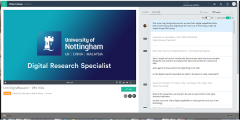
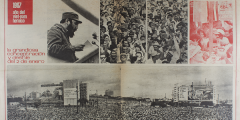

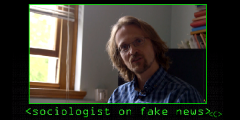

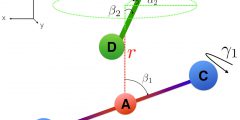



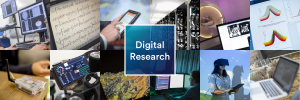
Recent Comments